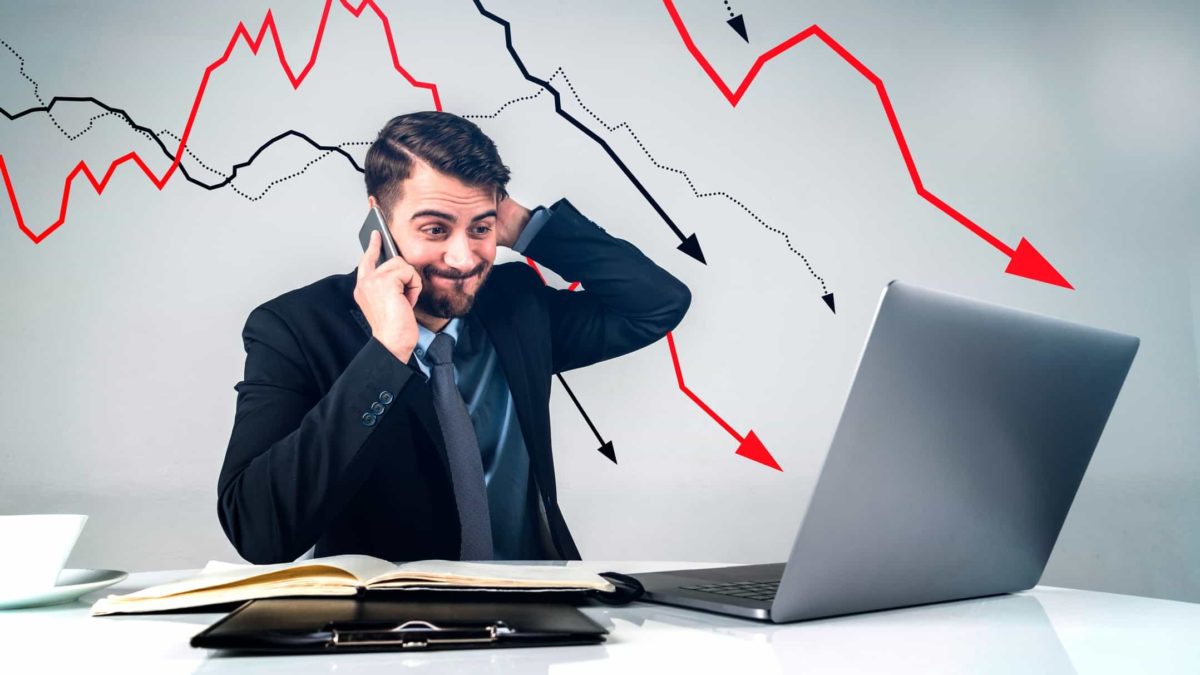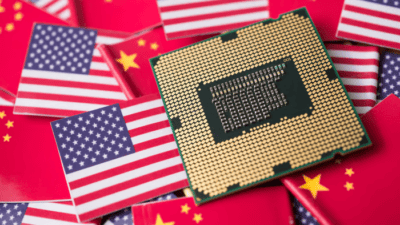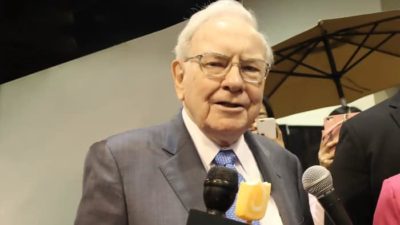This article was originally published on Fool.com. All figures quoted in US dollars unless otherwise stated.
When Jamie Dimon talks, the market listens. As the longtime CEO of JPMorgan Chase (NYSE: JPM), the largest bank by assets in the U.S., not only has Dimon successfully navigated the company through multiple recessions and made JPMorgan a best-in-breed bank stock, but he always has a good pulse on the economy.
With more than $3.8 trillion of assets, JPMorgan is exposed to every part of the economy from consumers to small businesses to the largest corporations -- and in almost every sector, too.
In an interview today on CNBC, Dimon said he expected the U.S. to enter a recession in six to nine months. He also said that while he doesn't know the future, the S&P 500, which has fallen roughly 25% from its all-time highs earlier this year, could fall "another easy 20%." Let's take a look at why Dimon is concerned and what investors should know.
High inflation and rates could drain the consumer
There are several reasons why Dimon is concerned, beginning with inflation. The Consumer Price Index (CPI), which tracks the prices on a market basket of consumer goods and services, rose a jaw-dropping 9.1% in June on a year-over-year basis. And there is no clear evidence that inflation has peaked yet. The CPI ticked up 0.1% in August from July, and economists expect the CPI to tick up another 0.2% from August when September inflation data comes out Thursday morning. Prices for things like rent have remained stubbornly high.
High inflation has forced the Fed to aggressively raise its overnight benchmark lending rate, including three consecutive 0.75-percentage-point hikes at its last three meetings.
Rising interest rates increase the cost of consumer debt, which is why mortgage rates have soared lately. Payments on student loans are also expected to resume for the first time in more than two years, another burden for consumers.
Dimon does believe the economy is still relatively healthy right now, but rate hikes can take time to work their way through the economy, so the economy has not felt their full impact yet. Hopefully, though, they will also slow the growth of prices or bring them down.
Stocks face their own concerns
If consumer demand dampens, companies are likely to feel the sting on their sales and profitability. Companies will also face a higher cost of debt and a higher cost of doing business. Many investors think analyst earnings projections are still too rosy, so if third-quarter earnings and guidance disappoint, expect downward revisions, which will potentially lead to lower valuations and lower stock prices.
Dimon also worries about how Russia's ongoing invasion of Ukraine will continue to impact the economy and markets. Previous oil sanctions as a result of the invasion sent oil prices soaring and rocked markets.
"I mean, Europe is already in recession -- and they're likely to put the U.S. in some kind of recession six to nine months from now," Dimon said today. Global economies are very interconnected, and large companies headquartered in the U.S. could very well be doing a big chunk of their business in Europe, so what happens abroad could spill over to the U.S.
Finally, Dimon is concerned about the impact of quantitative tightening. The Fed is currently in the process of reducing its massive balance sheet by letting its bond holdings mature and run off. This effectively pulls liquidity out of the economy. The last time the Fed did this, in 2019, it contributed to a spike in interest rates on short-term loans between banks -- an obscure but important part of the financial system known as the repo (short for "repurchase") market -- and it had to step back in to aid the market. Dimon is largely concerned because he doesn't know exactly what to expect.
What investors should know
What can you do with all this as an individual investor?
First, prudent management includes preparing for the worst. What happens next in the U.S. will depend on the state of the economy after the Fed is done with its rate hikes. Dimon did say that the U.S. economy is "actually still doing well," and this is not the first time Dimon has spoken about potential struggles ahead. But a deep global recession may not be fully priced into stocks yet. And the one thing Dimon expressed certainty about was more market volatility.
I think it's certainly normal to be nervous right now. But if you invest in companies with strong fundamentals and with a long-term horizon in mind, you are very likely to ride out any potential storm.
Second, remember that Dimon is talking about what will happen in the short term. If you can afford to wait -- at least three to five years -- history shows that markets almost always go up over the long haul.
This article was originally published on Fool.com. All figures quoted in US dollars unless otherwise stated.








